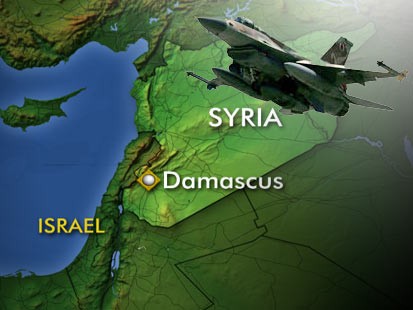Former President Jimmy Carter’s visit has attracted harsh criticism, especially by the American right which thinks that he went against the current policy of focusing on the rivalry between the West Bank and Gaza, the improvement of security and economy progress in the West Bank, and the continued extreme isolation of Gaza in order to make the choice clear for Palestinians: progress and development by supporting President Abbas or continued isolation and misery if they choose Hamas.
This strategy, according to its advocates, is the best diplomatic option for America. But has not yet borne fruit because it would require years or even decades to work. Carter described it as America’s biggest diplomatic embarrassment, on par with Ramsey Clarks’ defense of Saddam Hussein. He has spoken out despite America’s tradition that has tended to avoid having its former presidents interfering in foreign diplomacy as a show of respect for the current president’s foreign policy.
The former president described American diplomacy as being shortsighted and destructive because it does not understand the nature and history of Hamas by thinking that it is unwilling to change its own policies because of its stated ideological positions. Carter gave the impression to Hamas that it could break out of its isolation and also suggested that it come garner some sympathy from the American elite as well as ordinary citizens that would bring increased trust that could help to break the intransigence with Mahmoud Abbas and with Israel as opposed to the current strategy which has only weakened the position of Abbas to isolate and oppose Hamas.
We agree in large part with assessments of Carter’s visit, but we do not believe that it was entirely a failure. The visit accomplished several important things and delivered an indirect message to Hamas that most American leaders in pursuit of peace hate Bush’s policy toward the Arab-Israeli conflict:Those who are seeking the principles that Hamas still refuses on ideological grounds. President Carter wants to leave a legacy for himself as an advocate of peace. Having already won the Nobel Peace Prize, he wants to see Hamas recognize Israel and renounce violence and to accept previous agreements as well as to The Oslo Accords: infamous in the memory of Hamas’ ranks.
The other achievement of Carter’s visit was that it may have given some impetus towards an conversation inside of Hamas similar to that which took place inside of the PLO during the seventies. Because the debate inside Hamas as of now does not include any considerations of the demands of the International community but rather only between its own factions, despite even the most moderate positions of some of its members, it still sticks to its ideologically led strategy: opposition in principle to peace and co-existence with Israel.
Carter’s visit may have moved us a step forward in the direction of the beginning of an internal dialogue inside of Hamas, and it may even lead to an adoption of the PLO’s former stance. The American right is convinced that Carter’s visit weakened Hamas’ isolation, and will delay the holding of a positive political discussion within the movement and that eventually one of the sides in such a debate would prove suitable to negotiate with the international community. We, however, are convinced that his visit helped give a push towards an environment which would engender this very type of positive discussion inside of Hamas.
The desired change inside the ranks of Hamas has to be popular and not merely among its elite, because we greatly fear for such political divisions inside of Hamas. If the current tide of moderation by Hamas becomes isolated in the future it will no longer represent the mainstream views of the movement. To have proof of the possible failure of Hamas’ leadership to reign in its popular support we need only to look to the dangerous and unusual history of Islamic movements which are famous for their inability to lead any sort of disciplined following.
It seems that we are in need of an adjustment of the policy of isolation imposed on Hamas and to introduce elements to this policy which will help to encourage the growth of a culture that accepts many disparate views within the movement. We hope that such a culture will also lead to a consensus that accepts political transformation within its historical ideological political views that will make possible a different political horizon.

